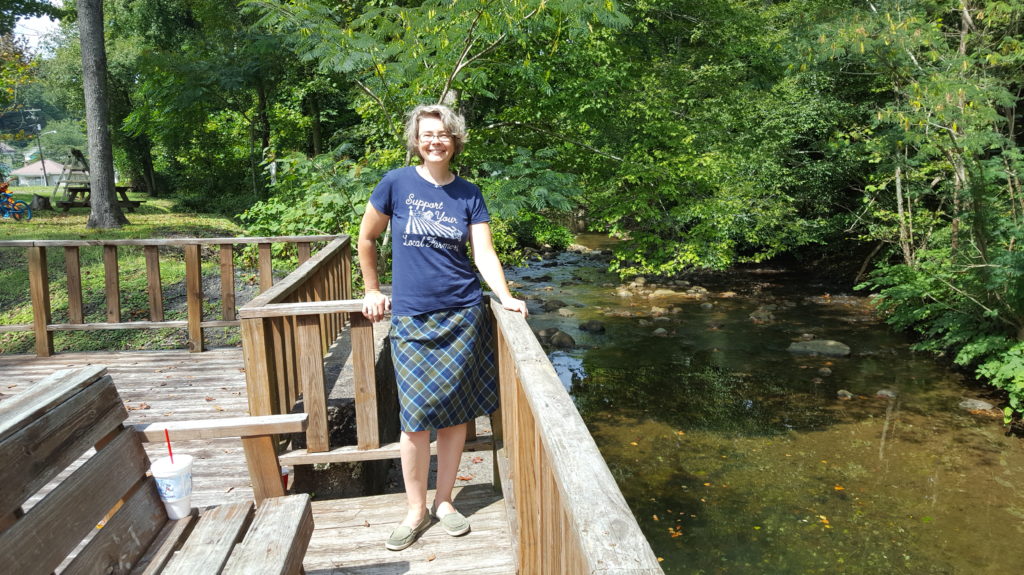I am honored and grateful that my oral history project, “Youth Activism in Different Generations in Appalachia,†was selected for this year’s Martha Ross Memorial Prize. As an anthropologist, oral historian, media artist, and educator, I share Martha Ross’s sense of “duty to capture and preserve an individual’s story†in service of both “the historical narrative†as well as promoting access to and understanding of different voices.
I first formally encountered oral history methodology in the 1990s when my partner helped conduct a video oral history project with Appalachian people over 65 about their memories of the forest for a local non-profit organization. I sat in on two interviews that she conducted with her grandmother, one about the forest in Eastern Kentucky where she grew up and another supplemental interview about her and her husband’s career as founding Bluegrass musicians. I had no idea at the time that this would lead to our production of an ongoing multimedia documentary project about their lives and music, or that I would embrace and incorporate oral history methodologies as part of my formal academic research.
The “Youth Activism in Different Generations in Appalachia†(or YAA) oral history project, which is part of my doctoral research, arose from recurring conversations and events around the intersections, roles, and goals of young people in the Appalachian region. My larger dissertation project focuses on youth media production in three educational sites in Central Appalachia (two in Eastern Kentucky and one in West Virginia) and incorporates mixed methods, including fieldwork, ethnographic and oral history interviews, participatory media education and production, digital ethnography, and archival research.
The YAA project considers intergenerational experiences of and reflections on youth, gender, civic engagement and activism, and regional development in Appalachia. Because this project focuses on comparative perspectives of present-day youth and reflections by the “formerly young,†interviews include people between 20 and 78 years of age. I received a project grant and a transcription grant from the Kentucky Oral History Commission to conduct and transcribe 22 interviews with 20 individuals in Kentucky, which are housed at the University of Kentucky Louie B. Nunn Center for Oral History and comprise about 30.5 hours of total interview time. Participants include different generations who are and/or have been engaged in different forms of organizing in several mountain counties of Eastern Kentucky.
The Martha Ross Memorial Prize will support the modest expansion of the YAA project to include oral histories with similar cohorts of youth activists from different generations in West Virginia. This project has taken on a life of its own as this opportunity will enable me to continue adding to this collection beyond my doctoral program. Thank you to OHMAR and the selection committee for this award and for the opportunity to expand the YAA oral history project and share it with broader audiences.
Tammy Clemons is a PhD Candidate in the Department of Anthropology at the University of Kentucky. Her dissertation research focuses on the cultural productions of young visual media makers in Central Appalachia and how they envision, construct, and act upon possibilities for young people in the region.
Tammy is also a media artist and co-producer of “Remembering the Reedys: Appalachian Music, Memory, and Migration,” a multimedia documentary blog/archive that features oral history interviews, digital audio and video of musical performances, radio broadcasts, photographs, news clippings, and historical and personal commentary. She also writes a blog where she shares field experiences and documentation as well as resources for digital tools and methods.

